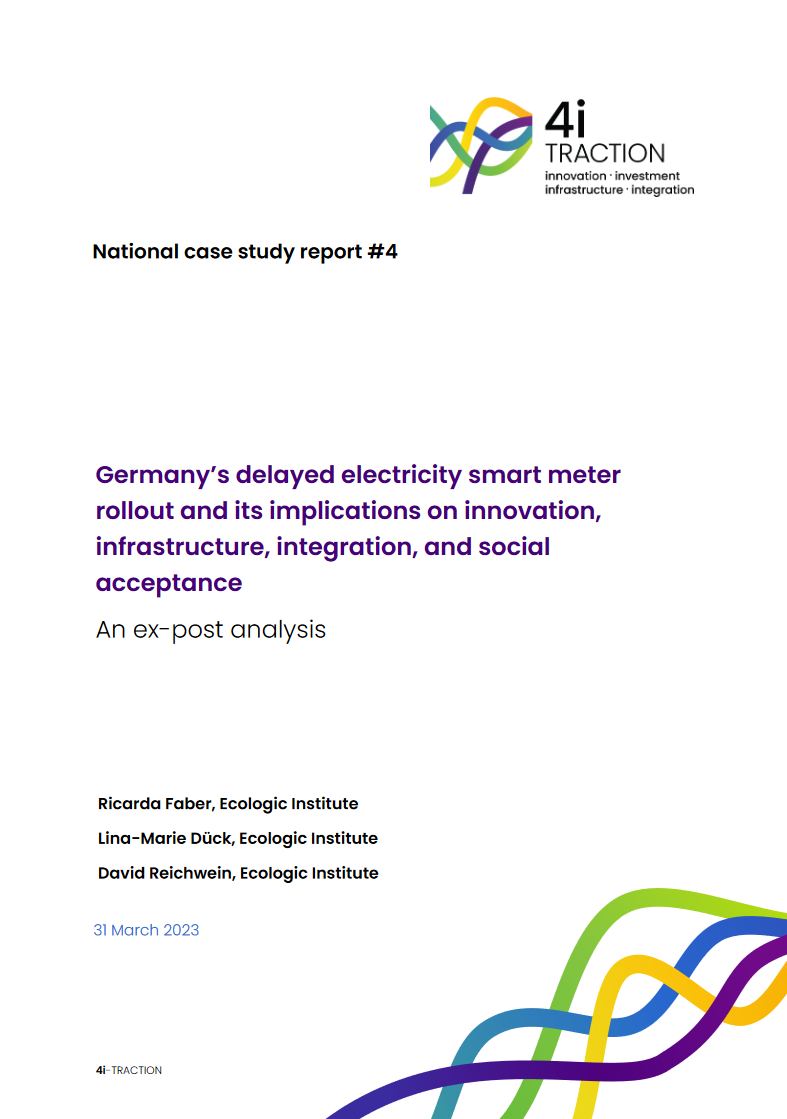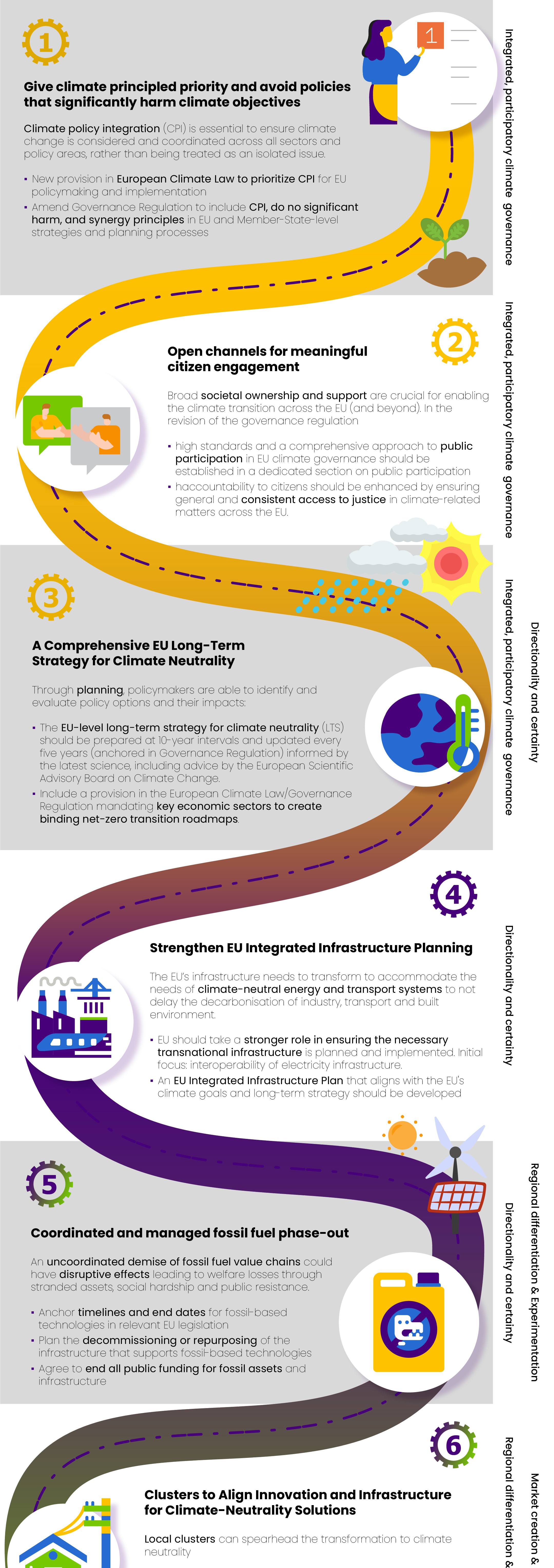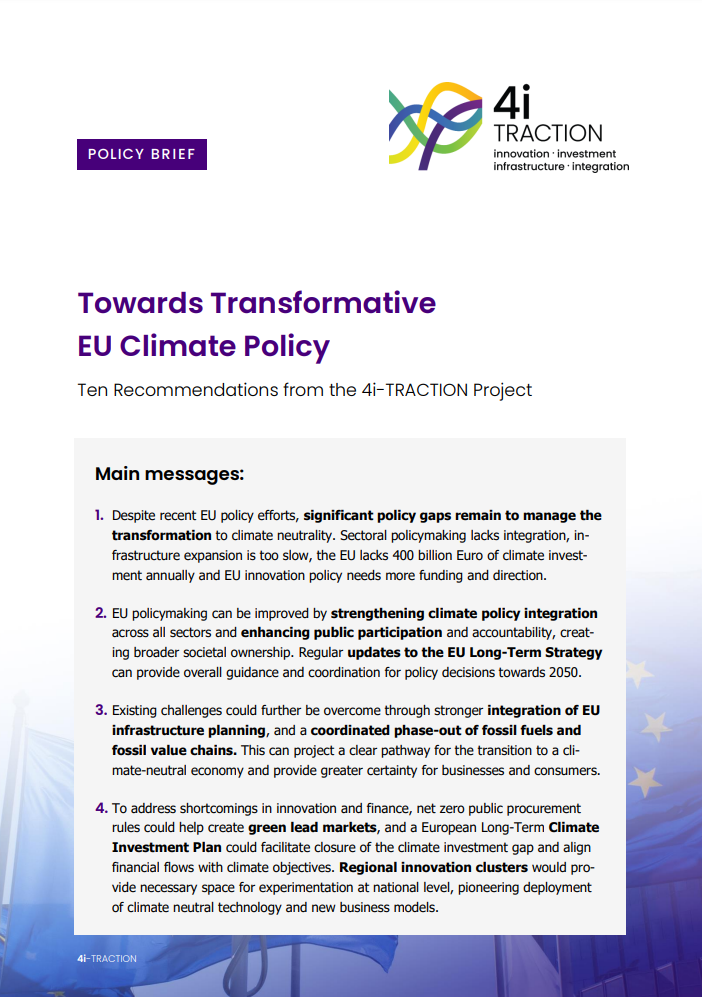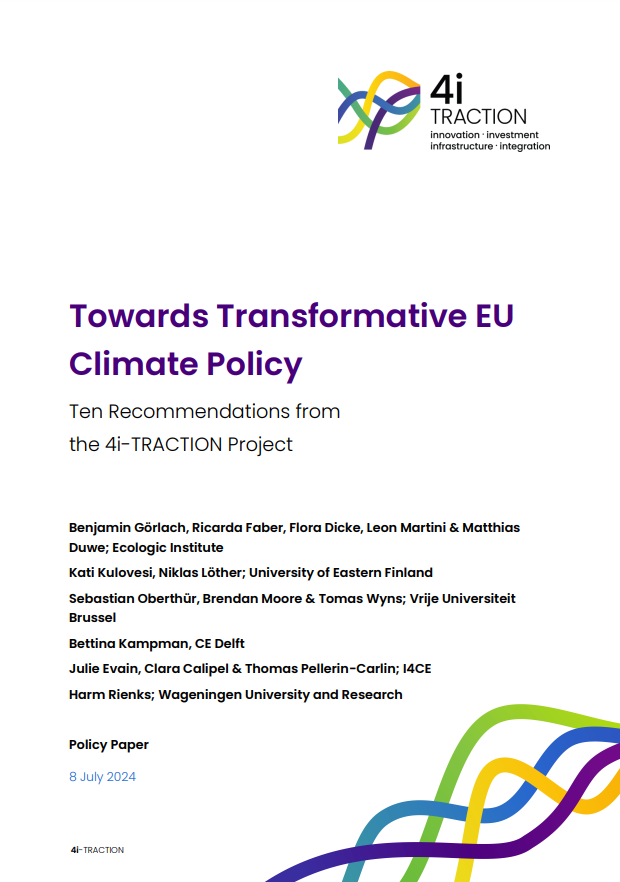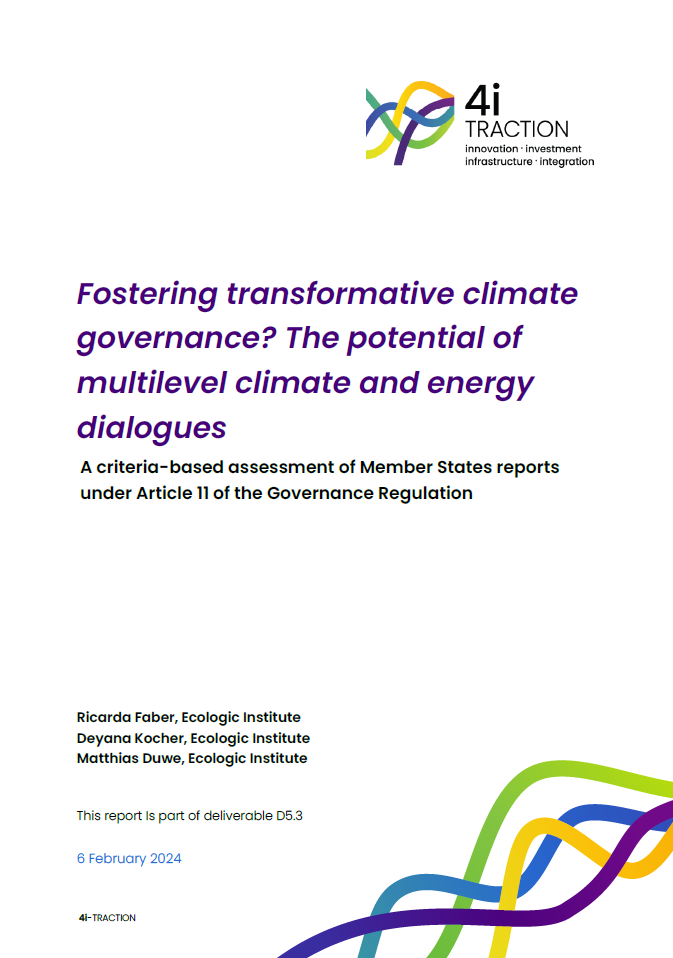Germany's Delayed Electricity Smart Meter Rollout and its Implications on Innovation, Infrastructure, Integration, and Social Acceptance
National case study report #4
- Publication
- Citation
Faber, R., Dück L.M., Reichwein, D. (2023): Germany’s delayed electricity smart meter rollout and its implications on innovation, infrastructure, integration, and social acceptance. An ex-post analysis. National Case Study of the 4i-TRACTION Deliverable D2.6. Ecologic Institute. Berlin
To achieve climate neutrality by 2050, the EU must digitalize its energy systems and facilitate the electrification of its economies. Smart energy grids combine energy production, storage and consumption and play a key role in this path. Within this electricity network, smart metering systems serve as intelligent communication technologies that can empower consumers and energy suppliers by providing valuable data to monitor energy generation and consumption. Moreover, they have the potential to enable fair electricity prices and increase energy independence.
EU Mandate for Smart Meters: Technical Requirements and Framework
To address the digital as well as the green transition, the EU first mandated its member states to roll out smart meters back in 2009. Within its smart meter framework, it requested certain minimum technical requirements such as transparency relating to energy consumption levels, the offering of varying price tariffs, the ability for sector-coupling as well as data protection and security measures.
Analyzing Germany's Delayed Smart Meter Rollout: Legislative and Technological Framework
Today, we can observe a heterogeneous implementation among EU countries, with Germany lagging far behind. To investigate the reasons for Germany’s delayed smart meter rollout, we conducted an ex-post analysis of the European and German legislative and technological framework in the period of 2009 – 2021, and beyond. Thereby, we use a process-tracing to follow different legislations through time. In particular, we examine Germany's key policy governing the country’s smart meter rollout – the Metering Point Operation Act (MPOA) (Messstellenbetriebsgesetz, MsbG) and what factors therein slowed down the rollout.
Transformative Policymaking for EU: Addressing Core Challenges
EU policymaking needs to move from an incremental policymaking approach to one that can achieve a transformation across all sectors – addressing all its technological, economic, political and social implications. To analyze if Germany’s smart meter rollout strategy and supporting policies are of a transformative character, we investigate how the key policy impacted the core challenges to transforming our economies: innovation, infrastructure, integration, and social acceptance. The analysis is supported by a systematic literature review and five expert interviews.
Recommendations for Future Policymaking
We find that a lack of regulatory intervention in the period 2005 – 2012 in Germany’s stance at kick-starting its smart meter rollout created uncertainties among market players. In other words, due to both unclear guidelines and standardized technological requirements, the market alone was unable to foster technological diffusion. The lack of regulatory intervention in the early phase and an overregulated market and a weak governmental framework in the later phases delayed the German smart meter rollout making it an unsuccessful transformative approach.
For future policymaking, we make the following four recommendations. First, to foster technological diffusion, governments should provide clear guidance to relevant stakeholders and deliver legislation timely to not hamper innovation progress. Second, policymakers should monitor the rollout of transformative innovations more closely and react in a fast and flexible way to signals from the ground. To meet the Paris climate agreements, policymakers should react immediately to signals that a rollout of an important technology is not progressing sufficiently fast. Due to the urgency of the issue, a ‘wait and see’ attitude that leads to unnecessary delays is a luxury that we do not have. Third, governments should provide a strong governmental framework. Transformative policy often requires inter-governmental cooperation. The ex-post analysis of the German smart meter rollout shows that if this aspect is not met, further delays can occur. And last, to avoid unnecessary costs and increase social acceptance, policymakers should ensure that new technologies, in this case smart meters, that do not yet comprise all technical functions are easily and cost-effectively able to be upgraded. As shown in this study, the inability to implement this feature in practice led to unnecessary costs and a re-certification process – in short, a further delay of the smart meter rollout.
Conclusion: Towards a Transformative Approach for Climate Neutrality
Overall, this case study shows that to achieve the digitalization of our energy systems and reach climate neutrality by 2050, policymakers must take a truly transformative approach and simultaneously address the core challenges of innovation, infrastructure, integration, and social acceptance. Future research should also include investment needs and the costs that relate to a smart meter rollout, e.g. the digitalization of our energy networks and the extension of supporting infrastructures.
